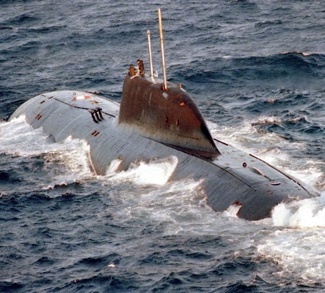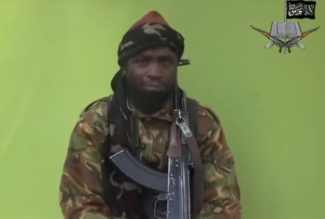FORECAST
The Iraqi government’s recent censure of talks between the U.S. government and Sunni insurgents suggests a rising tide of assertiveness in Iraqi politics leading up to general elections in January.
U.S. Secretary of State Hillary Clinton maintains that April talks between the U.S. government and the Political Council of the Iraqi Resistance were vetted by Baghdad. Mrs. Clinton’s claim has been both corroborated and refuted, depending on which Iraqi government source is asked.
It is likely that the Iraqi government was informed at the time, but is now seizing upon the issue to score political points ahead of January elections. The same can also be said about the Iraqi government’s decision to adopt a literal interpretation of the agreement mandating last month’s withdrawal of U.S. forces from urban areas, a stance that is creating friction with some U.S. commanders in the field.
Iraqi politics will contain a nationalist undercurrent until elections in January. This is simply because an assertive, sovereignty-affirming posture has the best chance of garnering votes. Expect continued friction between the U.S. and Iraqi governments and more realpolitik decision-making along the same lines as the Iraqi government’s recent dispatch of 9,500 troops to Kirkuk in response to oil contracts that were awarded by the regional government.
Just how far the Iraqi government will go in butting heads with Washington will be determined by two factors: the U.S.-Iranian engagement and levels of sectarian violence in Iraq.
Domestic political turmoil in Iran jeopardizes the prospect of a U.S.-Iranian rapprochement, which in turn increases the likelihood that Iran will seek to influence Shiite elements in Iraq against American interests.
In the event of a return to open hostilities between Washington and Tehran, the Shiite-led government in Iraq will once again have access to a powerful patron, one whose support will undoubtedly fuel sectarian strife in Iraq. However, it should be said that the likelihood of Iran actively meddling in Iraqi politics in the short term is small. Planners in Tehran are no doubt aware that the threat of civil war in Iraq still looms.
The nationalist streak in Iraqi politics comes at a sensitive time regarding the future of Kurds in Iraq. The long-festering debate over who controls Kirkuk – a region that holds 40% of Iraq’s oil – remains unresolved. A promised census and referendum on Kirkuk’s status has yet to materialize, prompting occasional threats of civil war from regional Kurdish authorities. There is a chance that the Kurds may interpret assertive moves by the Iraqi central government as their window of opportunity starting to close, and thus make a move to assert their independence while large numbers of U.S. forces are still deployed in Iraq.
SUMMARY OF EVENTS: July 20 – 27, 2009
NORTH AMERICA
Mexico
Thousands of heavily armed soldiers have been deployed Monday in Mexico in the government’s latest efforts to crack down on the country’s drug war.
United States
A controversial facility at Ft. Benning, Ga. — formerly known as the U.S. Army’s School of the Americas — is still training Honduran officers despite claims by the Obama administration that it cut military ties to Honduras after its president was overthrown June 28, NCR has learned.
An Alabama-based mining company stands accused of being behind the deaths of 67 people in Colombia after it hired a paramilitary group to provide “security” at its Colombian operations.
U.S. Secretary of State Hillary Clinton expressed concerns Tuesday about possible military cooperation between Myanmar and nuclear-armed North Korea, warning that it could destabilize the region.
The use of physicians at the U.S. prison camp in Guantanamo Bay has forced medical professionals to violate their ethics codes, according to findings published Thursday in the UK journal Lancet.
Top Bush administration officials in 2002 debated testing the Constitution by sending American troops into the suburbs of Buffalo to arrest a group of men suspected of plotting with Al Qaeda, according to former administration officials.
CENTRAL AMERICA AND THE CARIBBEAN
Honduras
An international mediator warned of civil war in Honduras after talks broke down between representatives of the country’s rival governments.
Honduras’ interim government Tuesday ordered Venezuelan diplomats to leave the country as the international community threatened new sanctions on the Central American nation if negotiations fail to resolve the crisis.
Ousted President Manuel Zelaya took a few symbolic steps inside Honduras on Friday but then backed away from a confrontation with Honduran security forces waiting to arrest him.
SOUTH AMERICA
Venezuela
Venezuela rejected on Tuesday a U.S. government report that said it was not cooperating fully in the war on drug trafficking, saying such accusations had to stop if bilateral relations were to improve.
Caracas has angrily rejected what it called an “absurd” demand from Honduras’s de facto government that gave Venezuelan diplomats until Friday to leave the country.
WESTERN EUROPE
Britain
British police have been handed ‘Chinese-style’ powers to enter private homes and seize political posters during the London 2012 Olympics.
EASTERN EUROPE
Russia
The Russian government has given itself sweeping powers to spy on its own citizens after a new decree gave intelligence services unlimited access to read all mail without a warrant.
Russia said on Wednesday that United Nations experts could not carry out their own investigation into the murder of Chechen rights activist Natalya Estemirova, but could give evidence to Russian police.
Russia will impose sanctions on U.S. firms or any others that provide weapons to Georgia, Moscow’s NATO envoy said Friday, after Washington reaffirmed its military support for the ex-Soviet republic.
Ukraine
A former senior figure in Ukraine’s interior ministry has confessed to the murder in 2000 of journalist Georgy Gongadze and implicated high-ranking state officials, authorities said Wednesday.
MIDDLE EAST
Iran
The wife of Iranian opposition leader Mirhossein Mousavi said Thursday her 62-year-old brother was among those detained after last month’s disputed election in what she called a futile attempt to pressure her husband and herself.
Iraq
Iraq criticized the United States on Friday for holding talks with Iraqis that Baghdad describes as terrorists, delivering a rebuke to Washington during a visit by Prime Minister Nuri al-Maliki to the U.S. capital.
Lebanon
The UN peacekeeping chief has said there are signs an illegal weapons stockpile that exploded last week in southern Lebanon belonged to the Lebanese guerrilla movement Hezbollah.
Turkey
Two retired Turkish generals went on trial on Monday in a group of 56 people accused of planning a coup in a case that highlights a power struggle over Islam’s role in the European Union candidate country.
CENTRAL ASIA
Kyrgyzstan
Kyrgyz election officials looked set to announce on Friday that incumbent Kurmanbek Bakiyev had won Thursday’s presidential election, despite opposition allegations that the vote was fraudulent.
SOUTH ASIA
Afghanistan
The U.S. military in Afghanistan is more closely integrating intelligence-gathering operations as part of its new drive against Taliban insurgents, a senior defense official said Thursday.
Indonesia
Indonesian police arrested Thursday a suspected would-be suicide bomber trained by the group believed to be responsible for last week’s deadly hotel attacks in Jakarta.
AFRICA
Democratic Republic of Congo
Murders, rapes and major internal displacement in the Democratic Republic of Congo have been linked to a number of multinational companies in a report released Wednesday by the international advocacy group Global Witness.
Mauritania
Mauritanian’s opposition Monday denounced “massive fraud” during Saturday’s presidental election and issued a challenge to former junta leader Mohammed Ould Abdel Aziz, who claims victory.
Zachary Fillingham is a contributor to Geopoliticalmonitor.com



